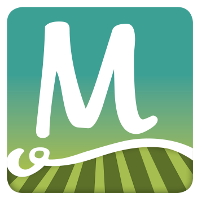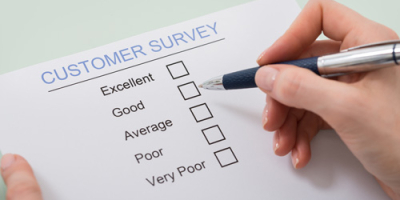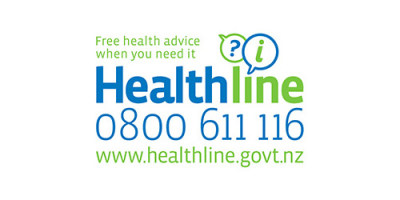Removing unused and unwanted medicines makes our homes safer for everyone who lives there or visits us. Safe disposal of these medicines protects our environment and makes a safer place for all who live in Aotearoa New Zealand.
There is no charge to you for the pharmacy waste disposal service. It could even save you money buying council rubbish bags for the extra waste!
If medicines are flushed down the toilet, the ingredients ultimately end up in our water systems and may potentially affect the plants and animals that rely on these water sources. Improper disposal of medicines may affect the health of the people and the planet.
Returned medicines go to a different type of landfill to our household rubbish. These special landfill sites meet very specific environmental standards to prevent any contamination of the surrounding land and waterways. Household waste landfill sites are not controlled to the same standards as specialist medical waste sites, and so there would be a risk of the medicines contaminating land and waterways near where you live.
If you put medicines in your household rubbish, there is a risk that other people may still get hold of and cause harm to themselves or others.
Returning unwanted medicines can help keep people who are distressed safe from harm by decreasing access to medications that are not prescribed to them. If you have concerns about the mental wellbeing of a member of your whānau, flat mate or friend who comes to visit, make sure that you don't leave your medicines easily accessible to them, and return unused medicines to a pharmacy. Store the medicines you regularly use in place that is out of sight and out of reach, ideally in a locked medicine cabinet or drawer.
All medicines if taken incorrectly at the wrong dose, or by the wrong person, for the wrong condition, have the potential to cause harm. Treat all medicines with respect - only order what you need, use as directed, keep securely out of sight and out of reach, review regularly, and return any unused medicines to a pharmacy.
If you have concerns for the mental wellbeing of yourself or others; contact 24/7 Text or phone 1737, or for young people Youthline 0800 37 66 33.
Every pharmacy provides a medicine disposal service.
Check HealthPoint to find the pharmacy closest to you and their opening hours.
Nelson Hospital has unused medicines safe deposit box by the lifts at the main entrance. The deposit box is round, at about eye level, and is on the wall to the right of the reception desk.
Keep your unused medicines in a safe place and out of sight until you can find a time to drop them off.
Yes. It does not need to be the pharmacy where you picked up the medicines. Find a pharmacy near you on Healthpoint.
You can return any type of medicine. It doesn't matter where you got it from, or when you got it. It can be partially used, or unused. In date or out of date. Blister packs, bottles or cardboard cartons of tablets or capsules, inhalers, creams, lotions, drops... From a supermarket, pharmacy shelf or prescription, or health food store. From New Zealand or from overseas. Just pop it in a bag and give it to a pharmacy.
Please feel free to return animal and pet treatments to a pharmacy for disposal. And until you can get pet medicines to a pharmacy to be returned the same safe storage advice applies. Wormers and flea treatments can be dangerous if used incorrectly. Do not use expired pet medications.
If you can, ask the permission of the person who the medicines belong to.
If the medicine is something that they should be taking regularly, ask them to discuss with their doctor or pharmacist.
If the medicines belong to someone who has passed away, it's important to return their unused medicines to a pharmacy as these can be dangerous if someone else was to take them. Medicines are prescribed for a named person and do not belong to the next of kin. If the person has died, return all of their medicines for safe disposal. If you are finding sorting out their medicines difficult ask a healthcare professional for help.
No, not at all. You can return them anonymously if you prefer, use a sealed bag, and remove/cross out your name on the labels. You won't be judged for returning medicines for yourself or your whānau. Returning medicines we no longer need or that have expired makes our homes and planet safer.
Once the medicines are dropped off, the pharmacist will need to check what types of medicines are returned, as legally some medicines need to be recorded in a register before they are destroyed.
Pharmacists need to go through the medicines returned to identify and separate controlled drugs, like analgesics such as morphine. These are recorded for destruction, stored safely and their destruction witnessed. Returned controlled drugs are made 'non-recoverable' for disposal (ground up or dissolved in water and mixed with cat-litter or gel to make a paste).
It's not a good idea to keep old medicines in case you might need them in the future, as they may no longer be appropriate or safe for you to take, and they might not work or make you sick.
Prescription co-payments have now been removed so getting a medicine that is safe, effective, and appropriate for you will no longer have a $5 pharmacy fee.
Store all medicines in your home in a cool, dry, secure place, out of the reach of small children. Even with older children or teenagers in the house, it's still a good idea to keep medicines out of sight and away from easy access. It doesn't matter the age of the person as medicines can be a risk of harm to anyone who might be distressed or struggling with their mental wellbeing. Take care of your friends and whānau by keeping your medicines in a locked safe place if there is anyone you are concerned about.
Have a look where medicines are kept in your home and consider who comes into your space to make it safer for friends, flat mates and whānau. Medicines are often kept in the kitchen or bathroom cupboards for ease of access, but somewhere else might be better and safer.
Do not share medicines with friends, flat mates, or whānau.
It is important that you don't put sharp items such as needles, syringes, or finger prickers in with your medicines when you return them to a pharmacy. We have to be careful with used needles so that people don't get needles stick injuries and spread diseases.
Anything with needles (sharps) need to be in the appropriate disposal container to keep everyone safe. Please tell the pharmacy if you have any of these to return, ideally before you take them to the pharmacy, and they can give you a container to put them in and seal up, and a spare to take home for next time.
If you have insulin pens, syringes, needles, or finger prickers because you are diabetic, then please return as usual via the diabetes service providers.
If you are an injecting drug user, please use the needle exchange providers - check HealthPoint for information: Search Results • Healthpoint
Unused medicines returned to pharmacies are disposed by specialist waste disposal companies according to the New Zealand Standard for the Management of Healthcare Waste.
Returned medicines cannot be reused for other patients, as quality, safety, and efficacy (how well they will work) cannot be guaranteed once a medicine has left the pharmacy. There is no way of knowing where or how the medicine has been stored and incorrect storage (for example in a warm, moist bathroom or a hot car) can lead to deterioration of the ingredients. Touching medicines can cause bacteria to grow, for example if tablets have been touched or dropped on the floor. We need to be able to ensure that the medicines you take are safe and effective for you.
Reasons for not reusing medicines include:
- Storage conditions - After the medicine has left the pharmacy storage container, temperature and humidity cannot be guaranteed.
- Stability - Once the medicine has been removed from the manufacturer's packaging, there is no way to know that the medicine has been stored in a way that will keep it effective.
- Identity of the medicine - It may be difficult to establish the identity of a medicine, especially when medicines are transferred into other containers or removed from the packaging. The medicine specified on the label may not be the one inside the bottle.
- Recall Issues - Manufacturer's medicines' recalls are difficult to trace and if the medicine has been potentially reused, the recalling would be impossible. Important information like batch numbers and expiry dates may be missing.
Medicines are of a very different nature to recyclable commodities such as aluminium cans and plastic bottles and cannot be recycled.
The advantages of returning unused medicines to a pharmacy for disposal is that the special landfill sites not only protect the environment but enhance it with wetland ponds to encourage wildlife.
Landfill produces methane gas (not good for climate warming), however, the gas from these specialist landfill sites is collected and used to generate electricity for the national grid, enough to power thousands of homes.
The WHO Guidelines for Drug Donations requires that unused medicines returned to pharmacies are not donated for use in developing nations, even in emergency situations, on the grounds of lack of guarantee about safety, quality and continued efficacy.
We need to respect other nations and only supply what they want to receive and not dump our unwanted medicines there where they may not have the facilities to deal with it safely.
In today’s crowded world, the reduction of waste is important. Only order what you need, only take what has been prescribed for you and return any unused medicines to a pharmacy for safe disposal.
It's good to let your doctor and pharmacist know if you have decided not to take a medicine that the doctor has prescribed for you. Your doctor and pharmacists will seek to understand your preferences and reasons so can provide the best health care possible.
Tell your pharmacist if you are no longer taking medication so they don't keep dispensing every month, leading to waste. Let the pharmacist know if a medicine gives you stomach-ache, or you don't know how to use an inhaler, or can't open a bottle/blister pack, or are forgetting to take your medicine, as they can help you with these issues so that you get the full benefit of the medicine.
Check the expiry dates of your non-prescription medicines and home remedies and only purchase what you need.








